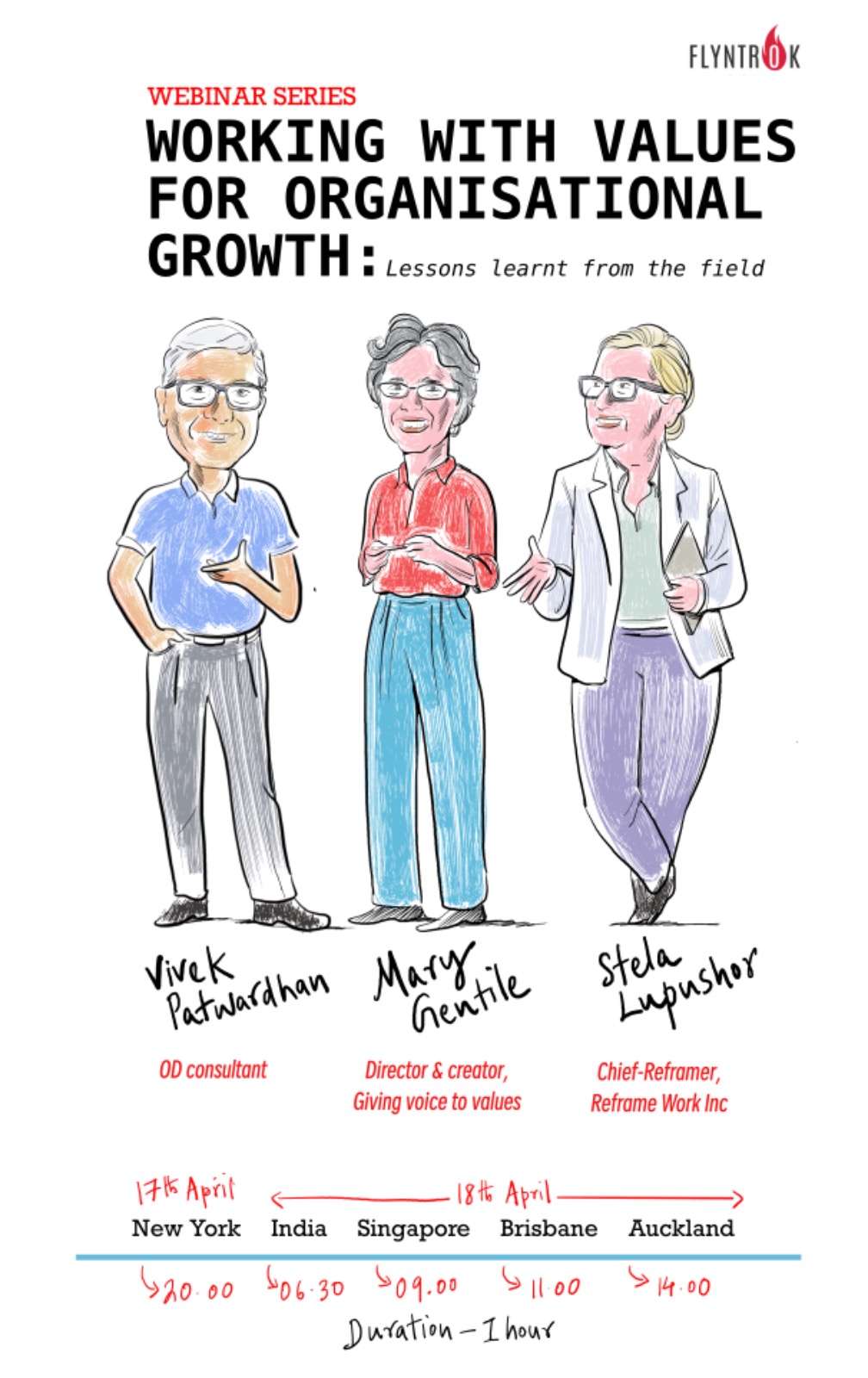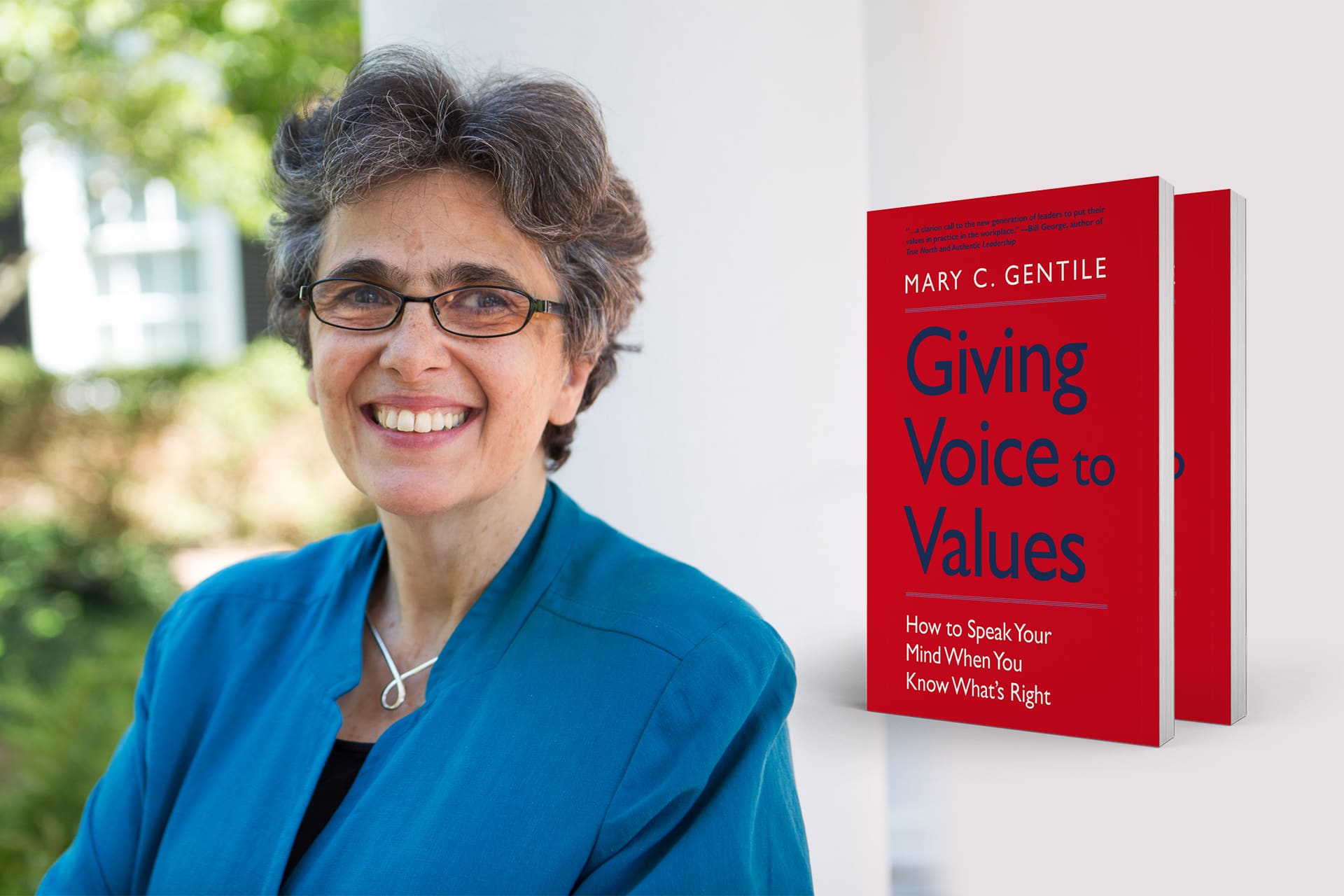Conversations and stories are critical to further our understanding of any topic. Particularly so for a topic like ‘values’. A topic that seems easy to get and often stays beyond reach of difficult conversations. The Working With Values series seeks to provide a platform for diverse views, experiences and views from across the globe to come together to further understanding. Theseries includes conversations, webinars, short and long form video interviews.
On the 18th April, we invited some of these thought leaders to have a conversation and share their perspectives on working with values.
Dr. Mary Gentile, Creator/Director of Giving Voice to Values; Professor of Practice at University of Virginia Darden School of Business; Senior Advisor, Aspen Institute Business & Society Program.
Stela Lupushor, Chief Reframer at Reframe Work and author of Humanizing Human Capital and Humans at Work
Vivek Patwardhan, HR and IR professional, OD Consultant and Executive Coach. Former Vice President-HR, Asian Paints
I had a great time working with these wonderful people. We were also joined by participants from the USA, Canada, Europe, Japan, India, Singapore and Australia. The conversation amongst the panelists and on the chat window was something that I relished!
What stays with me from our conversation?
Here are some highlights from our conversation that have stayed with me. As I write this, I am fully present to how what stays back from each workshop is deeply personal to each individual. This is what stays with me. To find out what stays back with you, please click on the link below to listen to the entire conversation 🙂
The value of values
- The values that are defined, embraced, lived, and debated are the values which bring significant contribution to alignment across an organisation regardless of the cultural background or market they play in.
- Values both evolve and are prescribed. People come and go in an organisation. Each person brings something new. This is why prescribed values are not set once and left alone. It requires constant dialogue.
Operationalising Values
- We have to go beyond “preach and pretend”. People need the opportunity to engage with scenarios that are relevant to their everyday lives and work collaboratively to try and develop solutions for them. That’s when it begins to become embedded and feel true to the self of the employees
On Storytelling as a tool for inspiring action
- Storytelling is fundamental in building values in an organisation. The “Tale of two stories” where people can learn what enables them to act effectively by individually reflecting on two questions:
- Think of a time when they encountered a significant values conflict in your work life & they found a way to effectively acting on their values
- Think of a time when they encountered a significant values conflict & were not effective
It is important for leaders to share their stories of values conflicts and the struggles they experienced and how they worked it through and when they were not able to work it through. It makes them more human so that others will feel less afraid to share issues with them. There is power in this vulnerability.
What does having different generations in the workforce simultaneously impact the values conversation in the workplace?
Organisations can be more inclusive when they design organisational values by taking into account the life-stage of our employees and the different values needs that brings. This individualising values, helps people to live them.
Understanding how you craft a story or narrative allows you to look at the same set of facts and come up with a different interpretation of what is possible. People who find a way to be influential around values conflicts in their organisations, frame a story in a way that makes it look possible in a way that did not otherwise.
Reframing values
- In an entrepreneurial approach to values we move from Values as “thou can’t do” to “what one can do”.
- Value creation is a partnership. This creates a bottom up approach to values.
- Often a contagion of fear leads people to pull back from a values driven position. These are moments of truth and how you handle this will shape in the long term how the company will be respected latter.
You can catch each of our panelists in our Working with Values interview series here and read more here.
The conversation was for an hour. I realise that we barely scratched the surface in the time that we were together. There are many questions that were raised that deserve a lot more attention and space. For instance, reflection on critical incidents came up as a point that I wished we could have spent a lot more time on.
The field is vast and my attempts are going to be earnest in hosting and spurring new conversations. That is a promise. And keeping my word is a value that I hold dear.


